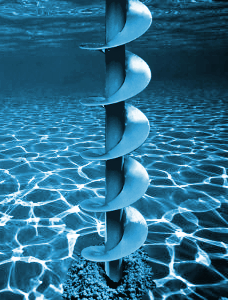Shallow claims slammed
 Scientists say shallow-water mining is not the eco-friendly version of deep-water mining.
Scientists say shallow-water mining is not the eco-friendly version of deep-water mining.
Finnish scientists argue that shallow-water mining goes against conservation and sustainability goals, despite being promoted as a sustainable option to meet the world's increasing demand for metals.
The researchers say shallow water mining operations could destroy habitats and degrade the quality of shallow waters, and they warn some operators may seize on the regulatory grey area of shallow water mining regardless.
Shallow-water mining projects are already underway in Namibia and Indonesia, and projects have been proposed in Mexico, New Zealand, and Sweden, but the effects of these projects have not been fully investigated.
Researchers argue that shallow-water mining needs more rigorous environmental evaluation before it can be declared safe and sustainable.
“Claims of reduced environmental impacts of shallow-water mining are not backed by credible evaluations but by hopes and assumptions that support a pro-mining narrative,” write the authors of a new study.
Extracting valuable materials such as gold, cobalt, copper, and phosphorites from the shallow-water ocean floor requires dredging large amounts of sediment.
Removing this sediment, which takes thousands of years to accumulate, means removing the organisms that call it home. The authors caution that this removal of habitat and inhabitants will result in biodiversity loss.
“In the absence of impartial comparisons of the ecological effects of different types of mining practices, there are no environmental or socioeconomic justifications in favour of shallow-water mining,” write the authors.








 Print
Print